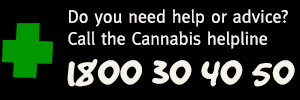The challenge of drug education in schools
The importance of engaging students in interactive drug education.

Teachers, drugs and society
As a teacher, it can feel as though society expects you not only to teach your students, but raise them as well. Teachers are often blamed for a range of issues including lack of academic performance among their students, as well as ineffective discipline, bad behaviour in young people and a whole host of other social ills.
Drug education is something that has fallen into the lap of teachers, along with sex education, driving safety, nutrition and a whole range of other health promotion responsibilities. As a teacher, you may feel overwhelmed and underequipped to shoulder these expectations, particularly those relating to drugs – and if this is the case, you are certainly not alone in being a little uncertain. You may not have had much personal experience with drugs and as a result, might not know how to broach the subject with your students. The good news is that since the rapid rise of sharing online, there is a great range of resources and advice available – if you’re unsure, you have a lot of options to choose from in order to gain the knowledge and support you need.
Drug education programs
Traditionally, drug education has focussed on a “Just say no” approach. Sex education used to run along the same lines, until the powers that be realised that expecting young people to abide by these somewhat unrealistic expectations was ineffective. Harm minimisation strategies such as education about STDs, birth control and protection, AKA the ‘rolling the condom down the banana trick’, began to be embraced in schools, with marked improvements in the well being of young people as a result. In terms of drug education, things have also improved. Teachers are provided with a whole range of programs, teaching resources and information about various drugs and their effects by agencies such as ours, as well as by the state and federal governments.
Engaging teaching resources
One such program that has been quite successful, is Love Bites. This is an effective school-based domestic and family violence and sexual assault prevention program run by the National Association for Prevention of Child Abuse and Neglect. It is a fantastic example of an engaging and interactive program that promotes community ownership and the empowerment of young people, particularly women and children. Creative workshops are run after information sessions to ensure students fully understand and consolidate what they have learnt. Visual expressions of the program’s key messages such as posters are created by students and displayed in the school and wider community. This encourages community acceptance and ensures the values taught in the program have a lasting impact among the student population.
So what can we learn from current programs?
What programs like ‘Love Bite’s’ show us is that the traditional style of teaching these life lessons may not be effective. Young people need to become part of the lessons, to practically engage with them, not just to listen to them. When thinking about your lesson plans for drug education, look at tasks that will encourage your students to really think about the effects of their actions, to think about people they know, and to get up out of their seats and get involved – this will help ensure key messages are more interesting and easier to remember.
NCPIC has a dedicated teachers’ section with a large range of resources designed to engage and inspire teachers and students – and a lot more new and interactive resources coming in the next six months! Videos, games and other teaching materials are available on our website for teachers to download free of charge.
Related Blogs











































